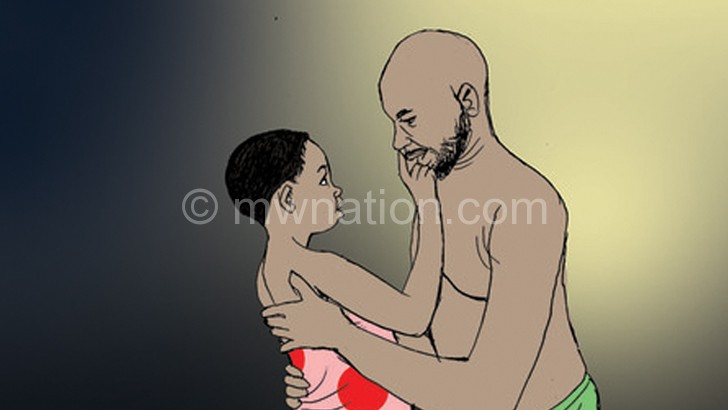Plight of defiled girls
Martha lived happily with her stepfather after her widowed mother remarried.
She never imagined that her new home would be a source of her troubles.

With the unwavering financial support from her stepfather, Martha, aged 14, even dreamnt of becoming a nurse.
But this other day, the monster in her dad reared its ugly head.
Says Martha: “I was in Standard Six then. My mother had gone to attend a church meeting. I was in my bedroom dressing up for school. In the blink of an eye, my stepfather entered my bedroom and said: ‘give in or face death’.”
This is how Martha lost her virginity. The man he had for two years called father had become an animal.
Her life was no longer the same. It had become a nightmare.
However, unlike some defilement survivors who suffer in silence, Martha chose to expose the perpetrator regardless of the relationship.
She says: “I was bold enough to act against his threats that he would kill me should I tell anyone.
“I preferred death to keeping this evil to myself. How would I trust him anymore?”
Her mother chose to save her marriage and warned her daughter against exposing the ordeal.
Her tale is shared by many girls in the country.
Much as it is speculated that superstitious beliefs are behind the mushrooming of defilement cases in the country, it is equally safe to say that the culture of silence is fuelling the behaviour.
Sometimes poverty becomes a scapegoat for hiding perpetrators of the vice. Some mothers, at the expense of their innocent daughters, continue to protect their husbands just to maintain the cash flow.
Women’s Legal Resource Centre (Wolrec) executive director Maggie Kathewera- Banda acknowledges the existence of such flawed reasoning.
This is the reason in 2019, Wolrec decided to empower women through provision of capital so that they become financially independent.
“We had observed that the reason behind secrecy was largely due to poverty. Wolrec is now injecting some top up capital in businesses of our women to make them self-reliant. We believe this will help in breaking the culture of silence,” says Kathewera-Banda.
It is a fact that perpetual begging reduces a person to slavery. It is, therefore, understandable to blame poverty as one of the factors behind the culture of silence.
But why are cases of defilement still increasing even in areas where initiatives like that of Wolrec are being implemented?
Nsanje District recorded 17 cases of defilement in the first half of 2022, according to figures from Nsanje District Health Office.
According to Blantyre Social Welfare child protection officer Stephano Joseph, Blantyre, another district where Wolrec is working, recorded 48 cases in May, June and July this year while last year alone, a total of 471 cases were recorded.
He suggests the need to review the legislation so that the age bracket extends from the current 16 to 18 years.
Says Joseph: “The Penal Code needs to be amended to ensure that all children are protected. This means amending Section 138 to cover girls of up to 18 years.”
Police records show that in 2021 the country recorded 2 387 defilement cases, an increase from 2 343 cases in 2020.
Kathewera-Banda attributed the increase to sensitisation, sentiments echoed by Minister of Gender, Children and Community Development Patricia Kaliati.
But whether the surge is due to an increase in reporting or just a surge of cases on grounds of immorality, the fact is that defilement cases are a thorn in the flesh requiring concerted efforts to deal with.
Section 138 (2) of the Penal Code states that any person who sleeps with a girl under the age of 16 commits a felony and is liable to a jail term of up to 14 years.
Should it then be concluded that the unprecedented surge in defilement is an indication that the law is not deterrent enough?
Kaliati, while acknowledging an improvement in reporting defilement cases, believes stiffening punishment can help more.
“We are revisiting Section 138 of the Penal Code. We need to put a stiff punishment. We are also invoking Section 147 (2 ) whereby owners of all entertainment places who allow children to be participating in their activities will be arrested and sentenced to 14 years in jail,” she observes.
The minister says this requires collective effort if it is to bear the desired results.
Kaliati says: “We might work very hard, but if judiciary is not implementing or enforcing the law the way we want, then we are fighting a losing battle. If the police are not arresting some of these perpetrators, we are fighting a losing battle.”
Issues of defilement need to be given a human face as the vice has terrible physical, social and psychological effects on the survivors. The choice we make determines the future we live. It is high time government and other stakeholders found a lasting solution to it. If we continue betraying our girls, where else will they be raised?




